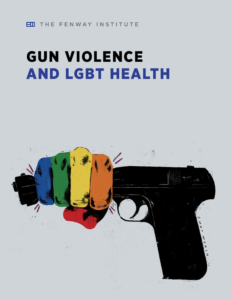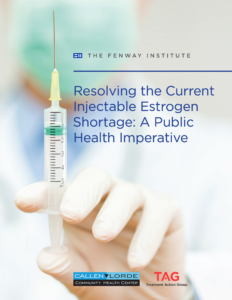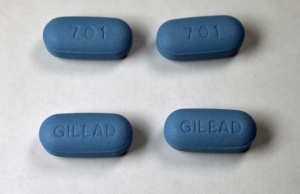ADVOCACY
The Fenway Institute conducts policy advocacy and research on issues affecting LGBT health, HIV/AIDS, hepatitis, sexually transmitted infections, tuberculosis, and other issues.
We also address the social determinants of health, which the World Health Organization defines as the circumstances in which people are born, grow up, live, work, and age, as well as the systems put in place to deal with illness. By publishing policy briefs, writing opeds, participating in media interviews, and submitting public comment and testimony often in partnership with other institutions Fenway Health and The Fenway Institute staff and affiliated researchers and scientists engaged in broad efforts throughout FY 2017 to advance and disseminate LGBT- and HIV-related health policy research.
Highlights of that work include:
JULY 2016
Fenway sent a team of five scientists and researchers to the International AIDS Conference in Durban, South Africa. Kenneth H. Mayer, M.D., Medical Research Director and Co-Chair of The Fenway Institute, who led the team, also authored “AIDS 2.0: Scientists Turn To Cell Phones And Facebook To Fight HIV”, for WGBH News describing the research presented by Fenway researchers.

AUGUST 2016
Fenway submitted public comment to the Administration for Community Living (ACL) of the U.S. Administration on Aging of the U.S. Department of Health and Human Services urging that ACL guidance reminding states of their obligation to direct public resources to older adults who have the greatest economic and social need include explicit language directing states to assess the needs of LGBT adults.
SEPTEMBER 2016
In response to The Institute’s report Our Health Matters: Mental Health, Risk, And Resilience Among LGBTQ Youth Of Color Who Live, Work, Or Play In Boston, the Boston City Council’s Committee On Healthy Women, Families & Communities held a hearing on the needs of the city’s LGBTQ youth of color. Report co-author Kerith Conron, ScD, MPH, who is an Affiliated Investigator at The Fenway Institute, and the Blachford-Cooper Research Director and Distinguished Scholar at The Williams Institute at the UCLA School of Law, offered testimony.

OCTOBER 2016
The Fenway Institute published the policy brief “Gun Violence and LGBT Health“. Report co-author Sophia Geffen wrote an oped based on the policy brief’s conclusions titled “Why Gun Control Needs to Be an LGBT Priority” for The Advocate.

NOVEMBER 2016
Fenway submitted public comment on the U.S. Food and Drug Administration’s Blood Donor Deferral Policy for Reducing HIV. Comment authors commended the agency for ending its lifetime ban on blood donations by gay and bisexual men and other men who have sex with men, but urged reconsideration of its replacement policy prohibiting any man who has had sex with another man within the previous year from donating blood. The new policy is based on a flawed understanding of male same-sex behavior, the comment authors wrote, and a more rational policy based on individual risk assessment would better serve the public’s health.
DECEMBER 2016
The Fenway Institute partnered with Callen-Lorde Community Health Center and Treatment Action Group (TAG) to publish “Resolving the current injectable estrogen shortage: A public health imperative“, a policy brief documenting the public health emergency that a shortage of injectable estrogen had created among transgender people. The brief urged the U.S. Food and Drug Administration to be more proactive in resolving the crisis.

JANUARY 2017
The Fenway Institute, Callen-Lorde Community Health Center, and Treatment Action Group (TAG) submitted public comment to the U.S. Food and Drug Administration on a proposed rule related to communications between manufacturers and health care providers regarding off-label uses of FDA-regulated drugs and medical devices. Comment authors noted that allowing for more free communications about off-label uses of their products could be beneficial to consumers in the short-term, but such communications could potentially harm transgender men and women if manufacturers communicate[d] information intended to sway healthcare providers away from prescribing estrogen or testosterone for transgender individuals, or provide[d] dosing and safety information that has not been fully validated.
MARCH 2017
The Fenway Institute, Emory University Rollins School of Public Health, and the O’Neill Institute for National and Global Health Law at Georgetown University Law Center submitted public comment to the United States Preventive Services Task Force on its draft research plan for prevention of HIV. The comment authors offered contextual questions for the study and recommended that the plan restrict its review of the clinical effectiveness of pre-exposure prophylaxis (PrEP) medications to oral TDF-FTC, which is what was approved for HIV prevention by the U.S. Food and Drug Administration in 2012.

APRIL 2017
The Fenway Institute submitted public comment to the U.S. Department of Health and Human Services: Administration for Community recommending that it retain questions about sexual orientation and gender identity on the Centers for Independent Living Program Performance Report survey, which evaluates services that help people with disabilities live independently.
MAY 2017
The Fenway Institute submitted public comment to the National Institutes of Health on the development of its Fiscal Year 2019 plan for HIV-related research. The Institute recommended several areas of research focus including biomedical interventions for HIV prevention such as pre-exposure prophylaxis and prevention strategies for populations disproportionately affected by HIV so that effective interventions to reduce these health disparities can be developed and implemented.
JUNE 2017
The Fenway Institute submitted public comment to the Joint Committee on Children, Families and Persons with Disabilities of the Massachusetts Legislature urging passage of An Act relative to abusive practices to change sexual orientation and gender identity in minors that would prohibit the practice of conversation therapy in Massachusetts.
